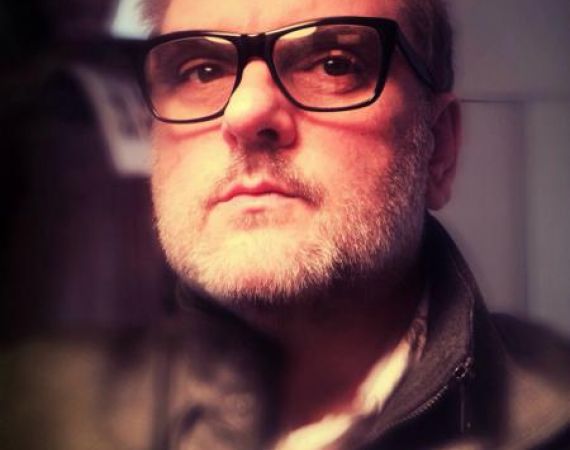Posted on Mon 7 Oct 2013
Lunchtime Talk: Richard Adams on the Illiterate of the 21st Century
Richard Adams, the Senior Academic Program Manager at Microsoft, came to talk to us at the Studio about the future of education in a time where we have a world of information at our fingertips. Due to the vast pool of knowledge that is the Internet, our world is rapidly transforming, and the…

Richard Adams
Richard Adams, the Senior Academic Program Manager at Microsoft, came to talk to us at the Studio about the future of education in a time where we have a world of information at our fingertips. Due to the vast pool of knowledge that is the Internet, our world is rapidly transforming, and the creative knowledge field is something that is being disrupted the most.
Richard began the talk by taking us through a brief history of education in Britain. He demonstrated that education is something that has always been changing according to religious/political/industrial factors. From schools in the middle ages, which were established to teach Latin grammar for clerical reasons, to schools of industry in the Industrial Revolution, which employed mass education techniques; education has always to a greater or lesser degree, been adapted to serve the motives of the powers that be (or were).
At the time of the death of the machine age and the birth of the computer age, computing and connectivity began disrupting the role of the organs of state. Due to the Internet, trade walls are falling, creating a new economy. The government have less to do with education now that we can learn online. Anyone can now receive online degrees from all over the world; the biggest proponents of this are China and the U.S. This means that the educational systems we have in place in the UK are beginning to mean less.
We are living in an age of uncertainty. We have to retire later, but work in less and less stable positions. Because of this, we have to learn to change our skills rapidly. At first this only applied to manual jobs, but it is beginning to apply to professional jobs just as much. This sort of constant contracting is seeing the re-emergence of the artisan and of portfolio careers. Out of this, most interestingly, has come the re-emergence of the artisan technologist.
So how do we adapt education in order to prepare people for living and working in this sort of environment? Due to search engines, the concept of learning something and remembering it is becoming obsolete. Children no longer need to revise and remember textbooks when they can look up information in seconds. We need to question whether it is necessary to store that sort of information. The education system seems to be clunking along a long way behind the way that children naturally learn today.
We need to provide a broad and deep core education. People need to have a grasp of lots of things at once. The ability to search, verify and filter has become integral to the way we learn from the Internet. In terms of ideas and innovation, children are already brilliant. In order to enable children to harness these intuitive skills, we need to teach presentation skills and collaboration. In terms of teaching children the computer science, we should not focus on teaching children specific programming languages, but should instead teach them the principles behind the languages and a broader understanding of computer science as a whole. This is to ensure that when they leave school, if the program language they have learnt has become out-dated; they still have the skills to adapt.
Richard told us that he had graduated in Fine Art, and had had a hugely varied professional career, including having been a teacher, digital consultant, interaction programmer and a sci-fi writer in his spare time. Richard referred to all of these professions as his education, and said that despite the huge variation, they have all played an important part in leading him to where he is now. We need to abandon the idea that the end of exams signifies the end of learning. The rigidity of 20th Century education is astonishing, and we should discard of that mode of teaching. Education shouldn’t narrow someone’s skillset; it should broaden it. We need to reassure people that switching careers is not that hard. We also need to abandon the traditional classroom layout. Having a teacher standing at the front of a classroom lecturing does not fit in with the way we communicate in the digital age. Education should be personalised, rules based, customised, international, social and shared. Richard was principal of School of Communication Arts 2.0 in which many of these traditional methods were dispensed with. The school provides a multitude of mentors with a hugely varied range of experience and expertise. Industry collaboration is encouraged from the start of the course, in order to properly prepare students for the careers ahead of them.
The age of connectivity is changing the way we give and take information. Wikipedia is a self-healing organism. If something is incorrect, it is generally swiftly corrected. This democratic, sharing approach is altering our once linear view of personal intelligence. We should study the educational systems that are being established online in order to keep education as a whole up to date with the way we function in the computer age.